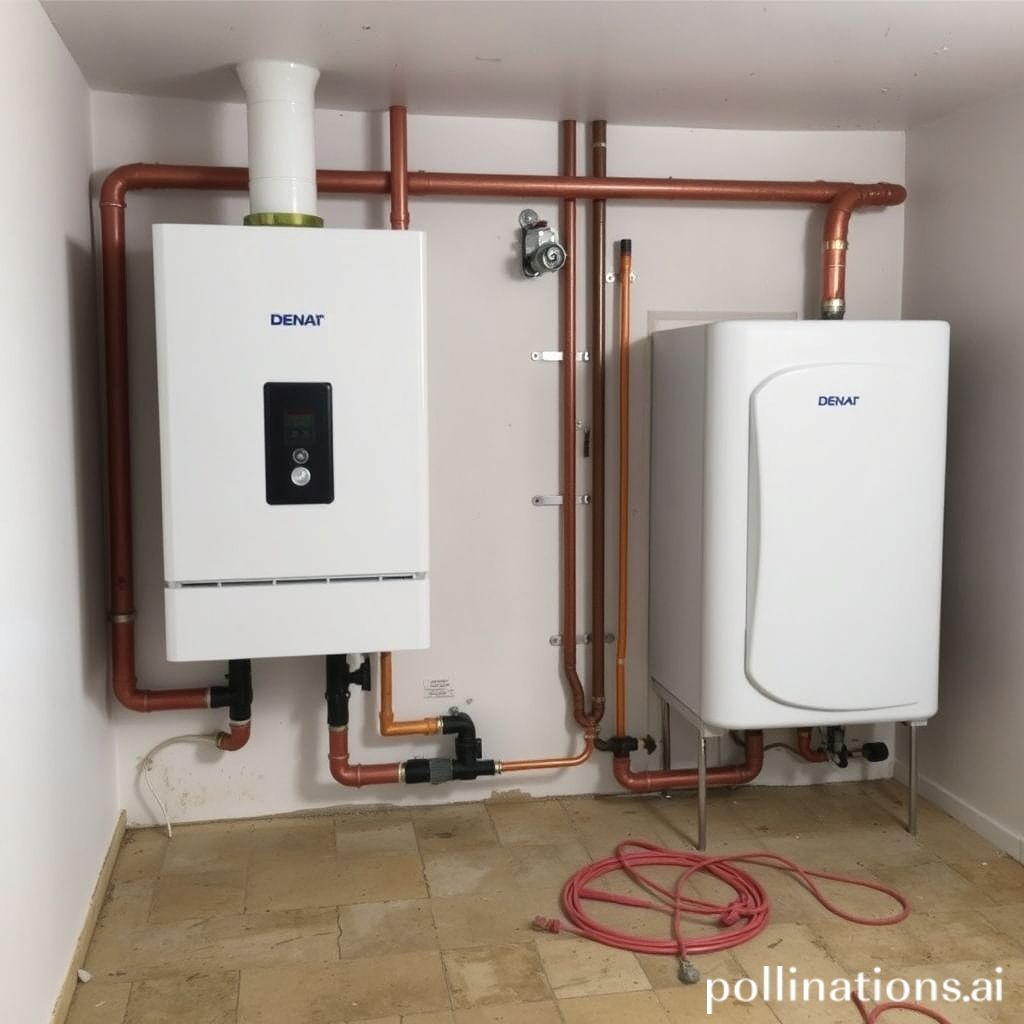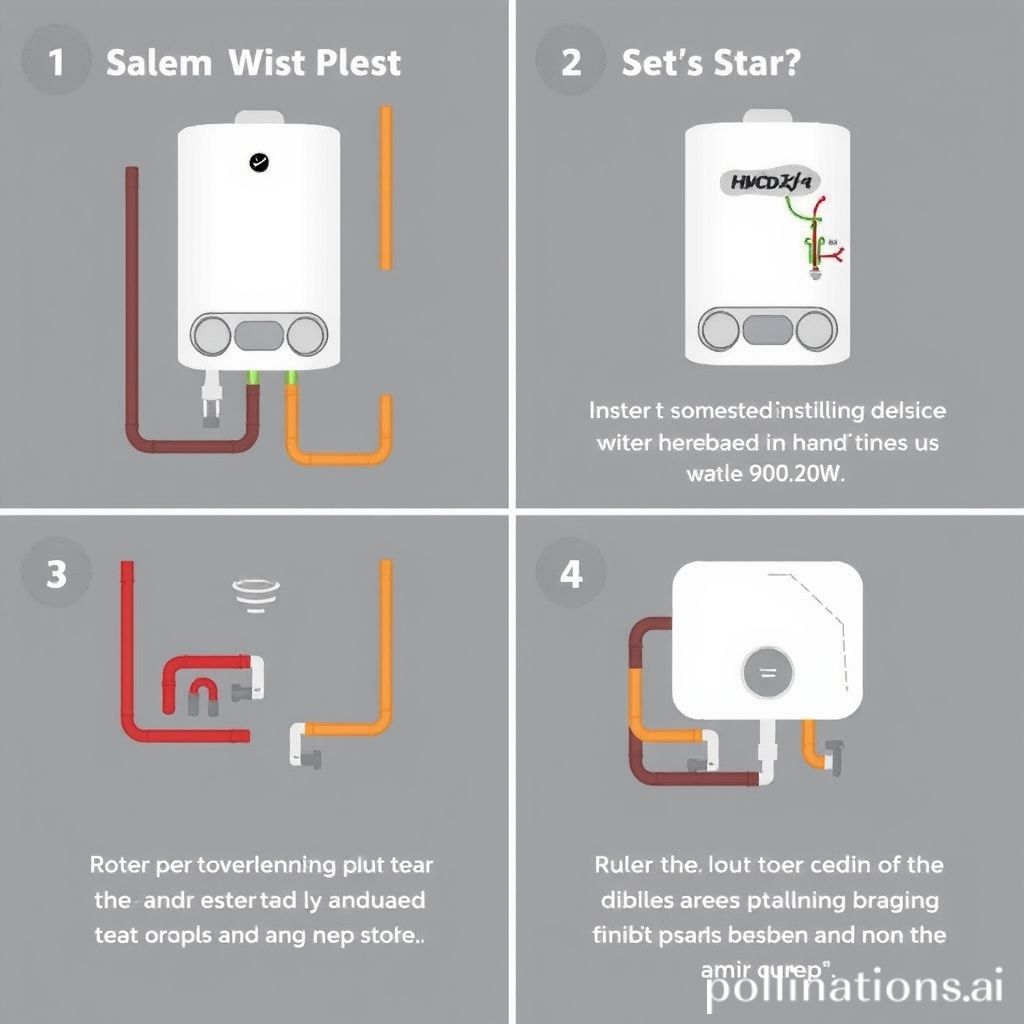Installing a hydronic boiler is a crucial step in creating a comfortable and efficient heating system for your home. With rising energy costs and increasing environmental concerns, homeowners are turning to hydronic boilers as a reliable and cost-effective solution.
In this article, we will investigate the benefits of installing a hydronic boiler, the different types available, and provide expert tips to ensure a successful installation. Whether you’re a DIY enthusiast or seeking professional assistance, this guide will equip you with the knowledge you need to make informed decisions and maximize the efficiency of your heating system.
Check Out The Exclusive Deals Only For You! ∇
Types of Hydronic Boilers
Hydronic boilers are an efficient and popular choice for heating systems in residential and commercial buildings. They use water or steam to distribute heat throughout a space, providing comfort and warmth. There are several types of hydronic boilers available on the market, each with its own unique features and advantages.
1. Gas-fired Hydronic Boilers
Gas-fired hydronic boilers are a common choice for many homeowners due to their high efficiency and cost-effectiveness. These boilers use natural gas or propane as fuel, which burns cleanly and releases heat into the water or steam. Gas-fired boilers are known for their quick and responsive heat output, making them ideal for colder climates and larger spaces.
2. Electric Hydronic Boilers
Electric hydronic boilers are another option for heating systems, especially in areas where gas supply may be limited or expensive. These boilers do not require a flue or chimney, as they do not produce any emissions. Instead, they use electric heating elements to heat the water or steam. Electric boilers are compact, easy to install, and have low maintenance requirements.
3. Oil-fired Hydronic Boilers
Oil-fired hydronic boilers are commonly used in areas where oil is readily available and affordable. These boilers burn heating oil to produce heat, which is then transferred to the water or steam. Oil-fired boilers are known for their durability and longevity, making them a reliable choice for heating systems. Nonetheless, they do require regular maintenance and may have higher operating costs compared to gas or electric boilers.
When choosing a hydronic boiler, it is essential to consider factors such as fuel availability, efficiency, and specific heating requirements. Gas-fired boilers are often favored for their efficiency and quick heat output, during electric boilers offer versatility and ease of installation. Oil-fired boilers are a reliable option for areas with oil availability but may require more maintenance. Ultimately, the choice depends on individual needs and preferences.
| Type of Hydronic Boiler | Advantages | Disadvantages |
|---|---|---|
| Gas-fired | High efficiency, quick heat output | Dependent on gas supply |
| Electric | No emissions, easy installation | Dependent on electricity supply |
| Oil-fired | Durable, reliable | Higher operating costs, regular maintenance |

Factors to Consider Before Installation
Sizing Requirements
In terms of installing a new system, one of the first factors to consider is the sizing requirements. Essential to choose a system that is the right size for your space. An undersized system may struggle to cool your room efficiently, during an oversized system may consume more energy than necessary and lead to higher costs in the long run. To determine the correct size, consider the square footage of the area you want to cool and consult with a professional for expert advice.
Energy Efficiency Ratings
Energy efficiency is a key consideration when selecting an air conditioning system. Look for systems with high energy efficiency ratings to ensure optimal performance whilst minimizing energy consumption. Energy-efficient systems not only help reduce your carbon footprint but also save you money on your monthly energy bills. Look for systems with the ENERGY STAR® label, as they have been certified to meet strict energy efficiency standards.
Cost Considerations
Cost is another important factor to consider before installation. Vital to establish a budget and determine what you are willing to spend on your new system. Consider not only the upfront cost of the system but also the long-term costs, including maintenance and repairs. At the same time it may be tempting to opt for the cheapest option, fundamental to balance cost with quality and choose a system that meets your needs and offers good value for money.
| Factor | Consideration |
|---|---|
| Sizing Requirements | Choose a system that is the right size for your space |
| Energy Efficiency Ratings | Look for systems with high energy efficiency ratings |
| Cost Considerations | Establish a budget and determine long-term costs |
Steps for Installing a Hydronic Boiler
Installing a hydronic boiler is a crucial step in creating an efficient heating system for your home. By maintaining these steps, you can ensure a successful installation process:
1. Preparing the Installation Area
The first step in installing a hydronic boiler is to prepare the installation area. This involves clearing the space, ensuring proper ventilation, and assessing the accessibility of the area. It’s important to choose a location that allows for easy maintenance and repair.
2. Connecting the Boiler to the Water Supply
Once the installation area is ready, the next step is to connect the hydronic boiler to the water supply. This involves connecting the water inlet and outlet pipes to the appropriate valves and fittings. It is crucial to ensure a proper seal to prevent any leaks.
3. Installing the Radiators or Underfloor Heating System
After connecting the boiler to the water supply, it’s time to install the radiators or underfloor heating system. This step involves positioning the radiators or laying out the underfloor heating pipes according to your heating requirements. It’s important to follow the manufacturer’s instructions for proper installation.

Maintenance and Troubleshooting Tips
Keeping your heater in good working condition is essential to ensure its longevity and efficient performance. Regular maintenance tasks and addressing common issues promptly can help you avoid costly repairs and keep your heater running smoothly. In this section, we will discuss maintenance tips, troubleshooting steps for common issues, and signs that indicate the need for professional assistance.
1. Regular Maintenance Tasks
Regular maintenance tasks are crucial for the optimal functioning of your heater. Here are some important tasks to include in your maintenance routine:
- Cleaning: Regularly clean the filters, vents, and ducts to remove dust and debris that can hinder airflow.
- Inspecting and Replacing Parts: Check for any worn-out or damaged parts and replace them as needed. This includes belts, motors, and electrical connections.
- Lubricating: Lubricate moving parts to reduce friction and ensure smooth operation.
- Checking Thermostat: Test the thermostat settings and calibrate it if necessary to maintain accurate temperature control.
- Checking Carbon Monoxide Detectors: Ensure that your carbon monoxide detectors are working correctly and replace the batteries regularly.
2. Common Issues and Troubleshooting Steps
Even with regular maintenance, you may encounter some common issues with your heater. Here are a few troubleshooting steps you can take:
- No Heat: Check if the thermostat is set correctly and the circuit breaker is not tripped. Inspect the pilot light or ignition system and relight if necessary.
- Inadequate Heating: Clean or replace the air filters and ensure proper airflow. Check if the ducts are properly sealed and insulated.
- Strange Noises: Listen for any unusual noises like rattling or banging. It could indicate loose or damaged components that need repair.
- Uneven Heating: Check if the vents are open and unobstructed. Consider adjusting the dampers to balance the airflow between rooms.
3. Signs that Indicate the Need for Professional Assistance
During regular maintenance and troubleshooting can resolve many issues, certain signs indicate the need for professional assistance. Contact a qualified technician if you experience the following:
- Unusual Odors: Foul or burning odors could indicate a gas leak or electrical problem.
- Frequent Cycling: If your heater frequently turns on and off, it may indicate a malfunctioning thermostat or a more significant issue.
- Poor Air Quality: If you notice excessive dust, allergies, or decreased indoor air quality, it may be time to have your heater inspected.
- High Energy Bills: A sudden increase in your energy bills without any change in usage could indicate an inefficient heater.
| Topic | Information |
|---|---|
| Regular Maintenance Tasks | Cleaning, inspecting and replacing parts, lubricating, checking thermostat, checking carbon monoxide detectors |
| Common Issues and Troubleshooting Steps | No heat, inadequate heating, strange noises, uneven heating |
| Signs that Indicate the Need for Professional Assistance | Unusual odors, frequent cycling, poor air quality, high energy bills |
Faq about Hydronic Boilers
FAQ 1: What is the lifespan of a hydronic boiler?
The lifespan of a hydronic boiler can vary depending on various factors, such as the quality of the unit, maintenance, and usage. On average, a well-maintained hydronic boiler can last anywhere from 15 to 25 years.
FAQ 2: Can a hydronic boiler be used for both heating and hot water?
Yes, a hydronic boiler can be used for both heating and hot water. It is a versatile system that can efficiently provide warmth for your home and also supply hot water for daily use.
FAQ 3: Are hydronic boilers energy efficient?
Yes, hydronic boilers are known for their energy efficiency. They use water as a heat transfer medium, which allows for more efficient and even distribution of heat throughout your home. This can result in lower energy consumption and reduced utility bills.
FAQ 4: How often should a hydronic boiler be serviced?
It is recommended to have your hydronic boiler serviced annually. Regular maintenance can help ensure its optimal performance, maximize its lifespan, and identify any potential issues before they become major problems.
FAQ 5: Can I install a hydronic boiler myself or should I hire a professional?
Installing a hydronic boiler requires technical knowledge and expertise. It is best to hire a professional HVAC technician or plumber who is experienced in hydronic boiler installations. They can ensure proper installation, safety, and optimal performance of the system.
Read More:
1. Which Is Better For Your Home: A Hydronic Boiler Or Electric Heating?
2. 4 Benefits You Need To Know



